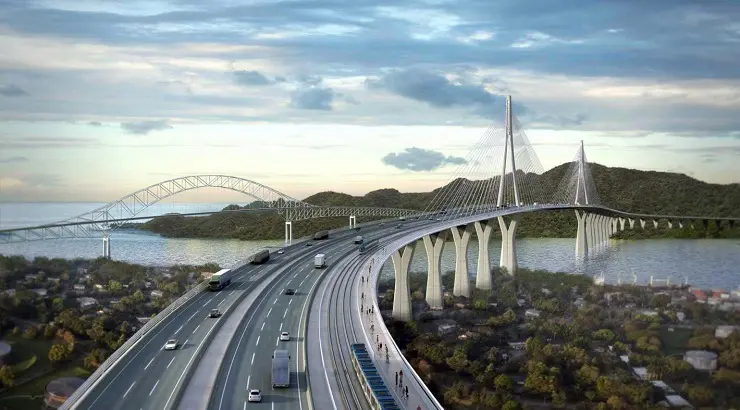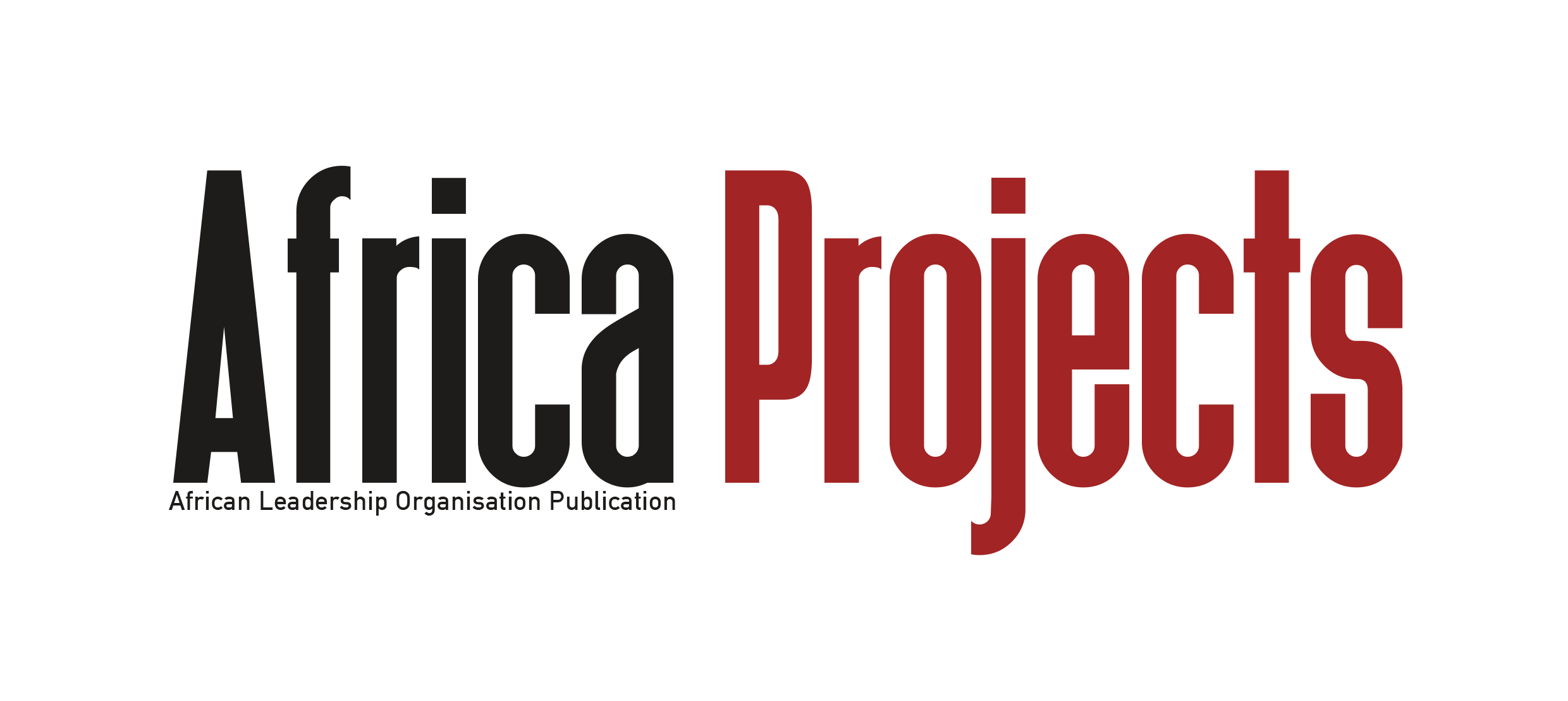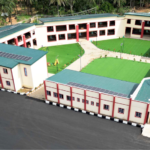- Home
- Features
- Startup Zone
- Projects
- Policies
- Shop
- Policies
- Projects
- Startup Zone
- Country Spotlight
- Analysis
- Tech
- Policies
- Projects
- Startup Zone
- Country Spotlight
- Analysis
- More
- Beyond the Kalashnikov: Africa’s Shift Toward Technology-Driven Warfare
- Afrail Express: Uniting a Continent on Rails
- AFRICA’S ENERGY CORRIDORS: CONNECTING POWER, PEOPLE, AND PROSPERITY
- Startup Lions Campus: Empowering Kenya’s Digital Generation
- L’Art de Vivre’s Le Paradis de Mahdia: Tunisia’s Model for Sustainable Luxury
- The Lobito Corridor: Rewiring Africa’s Trade Arteries Through Strategic Infrastructure
- AFRICA’S GREEN ENERGY TRANSITION: A BEACON OF HOPE FOR CLIMATE ACTION
- Dangote Refinery: Showcasing Africa’s Project Success Story
- AFRICA GREEN ECONOMY: ALL YOU NEED TO KNOW
- The Most Important Amicus Brief in the History of the World
- The Rise of Indigenous UAVs: Africa’s Drone Capabilities in Warfare and Surveillance
- AFRICA’S LARGEST OIL PRODUCERS: A COMPREHENSIVE OVERVIEW
- Beyond the Kalashnikov: Africa’s Shift Toward Technology-Driven Warfare
- Afrail Express: Uniting a Continent on Rails
- AFRICA’S ENERGY CORRIDORS: CONNECTING POWER, PEOPLE, AND PROSPERITY
- Startup Lions Campus: Empowering Kenya’s Digital Generation
- L’Art de Vivre’s Le Paradis de Mahdia: Tunisia’s Model for Sustainable Luxury
- The Lobito Corridor: Rewiring Africa’s Trade Arteries Through Strategic Infrastructure
- AFRICA’S GREEN ENERGY TRANSITION: A BEACON OF HOPE FOR CLIMATE ACTION
- Dangote Refinery: Showcasing Africa’s Project Success Story
- AFRICA GREEN ECONOMY: ALL YOU NEED TO KNOW
- The Most Important Amicus Brief in the History of the World
- The Rise of Indigenous UAVs: Africa’s Drone Capabilities in Warfare and Surveillance
- AFRICA’S LARGEST OIL PRODUCERS: A COMPREHENSIVE OVERVIEW
- Beyond the Kalashnikov: Africa’s Shift Toward Technology-Driven Warfare
- Afrail Express: Uniting a Continent on Rails
- AFRICA’S ENERGY CORRIDORS: CONNECTING POWER, PEOPLE, AND PROSPERITY
- Startup Lions Campus: Empowering Kenya’s Digital Generation
- L’Art de Vivre’s Le Paradis de Mahdia: Tunisia’s Model for Sustainable Luxury
- The Lobito Corridor: Rewiring Africa’s Trade Arteries Through Strategic Infrastructure
- Startup Zone
Top Insights
Bridging Africa: The Most Ambitious Road And Rail Projects Underway
The economic benefits of these projects are significant. By enhancing connectivity and facilitating trade, these projects will stimulate economic growth, create jobs, and increase economic opportunities.

Africa is on the cusp of a transportation revolution, with numerous ambitious road and rail projects underway to enhance connectivity, facilitate trade, and promote economic growth. These transformative transport corridors are designed to link trade hubs and landlocked countries, unlocking new opportunities for economic development and regional integration.
THE IMPORTANCE OF TRANSPORTATION INFRASTRUCTURE
Transportation infrastructure plays a critical role in Africa’s economic development, with the lack of adequate infrastructure being a significant constraint to trade and economic growth. The African Development Bank estimates that infrastructure deficits cost the continent around 2-3% of GDP growth annually. However, with the launch of several major road and rail projects, Africa is taking significant steps towards addressing these infrastructure gaps.
TRANS-AFRICAN HIGHWAY NETWORK
One of the most ambitious road projects underway is the Trans-African Highway Network, which aims to connect all African capitals and major commercial centers. This network will facilitate the movement of goods, services, and people, reducing travel times and costs. For example, the Lagos-Abidjan highway, which connects Nigeria, Benin, Togo, and Côte d’Ivoire, is expected to boost trade and economic cooperation between West African countries.
THE ABIDJAN-LAGOS HIGHWAY DEVELOPMENT PROJECT : a transformative infrastructure initiative aimed at boosting regional trade and mobility across five West African nations: Nigeria, Benin, Togo, Ghana, and Côte d’Ivoire. Here’s what you need to know about the project.
Project Overview
The highway will span approximately 1,028 kilometers, connecting major economic centers and port cities along the West African coast.
The project involves developing a transnational six-lane dual-carriage highway with modern design standards, dedicated freight lanes, intelligent transportation systems, service areas, and border crossing facilities
The project is expected to enhance regional connectivity and reduce transit times, facilitate cross-border trade through improved infrastructure and border crossing procedures
And Reduce transportation costs along the corridor by at least 25% to enhance competitiveness.
Experts say there are high chances of an Improved road safety through modern design standards and traffic management systems which will in turn Stimulate economic development along the corridor through improved accessibility
Thousands of jobs are expected to be created, peojections indicate that over 90,000 direct jobs during construction will be generated and 30,000 permanent jobs during operation
There would be Improved market access for agricultural producers and enhance trade opportunities, transportion costs for consumers and businesses is expected to be reduced drastically while creating new tourism development potential and improve access to social services
Funding and Progress
– The African Development Bank (AfDB) has confirmed plans to invest $15 billion into the project.
– The project is expected to be completed by 2033, with construction set to commence in phases from 2027.
– The highway is designed to have a capacity for up to 60,000 vehicles per day in peak sections.
Strategic Importance
– The Abidjan-Lagos Corridor Highway represents a flagship project for West African integration, connecting five countries that together account for over 75% of ECOWAS GDP.
– The project directly supports the implementation of the African Continental Free Trade Area (AfCFTA) by enhancing physical connectivity and reducing logistics costs.
RAIL PROJECTS
Rail projects are also a key focus area, with several major initiatives underway to develop Africa’s rail network. The Lamu Port-South Sudan-Ethiopia-Transport (LAPSSET) corridor, for instance, includes a new rail line that will connect Kenya’s Lamu Port to South Sudan and Ethiopia. This project will not only enhance regional connectivity but also provide an alternative route for goods and commodities.
THE ADDIS ABABA-DJIBOUTI RAILWAY
The Addis Ababa-Djibouti railway is a major rail project that has transformed the transportation landscape in the Horn of Africa. This railway has reduced Ethiopia’s reliance on Djibouti’s port for imports and exports, while also providing a faster and more efficient mode of transportation for goods and passengers.
The benefits of these road and rail projects are numerous. They will not only enhance connectivity and facilitate trade but also create jobs, stimulate economic growth, and improve the quality of life for African citizens. By investing in transportation infrastructure, African countries can unlock new opportunities for economic development and regional integration.
While there are many benefits to these projects, there are also challenges to be addressed. These include funding constraints, environmental concerns, and the need for effective project management. However, with careful planning and implementation, these projects can be completed successfully, providing significant benefits for African countries and citizens.
One of the key objectives of these road and rail projects is to promote regional integration and cooperation. By connecting trade hubs and landlocked countries, these projects will facilitate the movement of goods, services, and people, promoting economic cooperation and development.
The economic benefits of these projects are significant. By enhancing connectivity and facilitating trade, these projects will stimulate economic growth, create jobs, and increase economic opportunities. According to the African Development Bank, every dollar invested in infrastructure generates an average return of around 5-6% in terms of economic growth.
In conclusion, the road and rail projects underway in Africa are transformative initiatives that will reshape the continent’s transportation landscape. By enhancing connectivity, facilitating trade, and promoting economic growth, these projects will unlock new opportunities for economic development and regional integration. As Africa continues to invest in its transportation infrastructure, the continent is poised to experience significant economic growth and development in the years to come.
Recent Posts
Related Articles
Cutting-Edge Environmental Conservation Projects and Their Champions
Environmental conservation has entered a decisive era. As climate change accelerates, biodiversity...
ByafricaprojectJanuary 28, 2026Clean Water Access Projects Improving Lives in Underserved Regions
Access to clean and reliable water remains one of Africa’s most pressing...
ByafricaprojectJanuary 19, 2026Industrial Corridors Attracting Global Investors
Across Africa, industrial corridors are emerging as strategic economic arteries driving industrialization,...
ByafricaprojectJanuary 16, 2026The Engineers Behind Africa’s Tallest and Most Iconic Towers
Across Africa, the rise of tall and iconic towers is reshaping skylines...
ByafricaprojectJanuary 15, 2026












